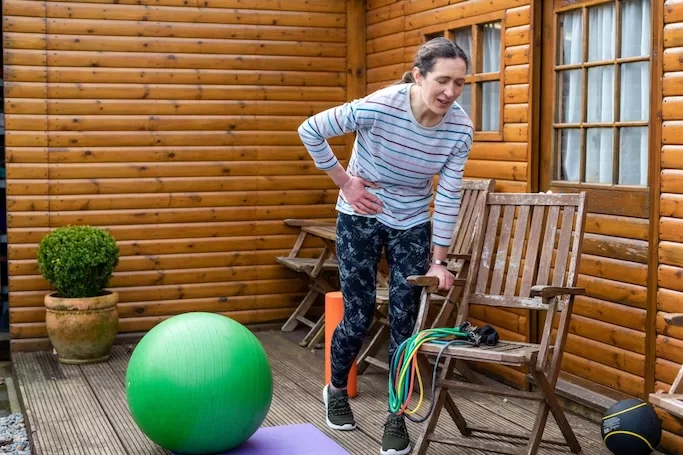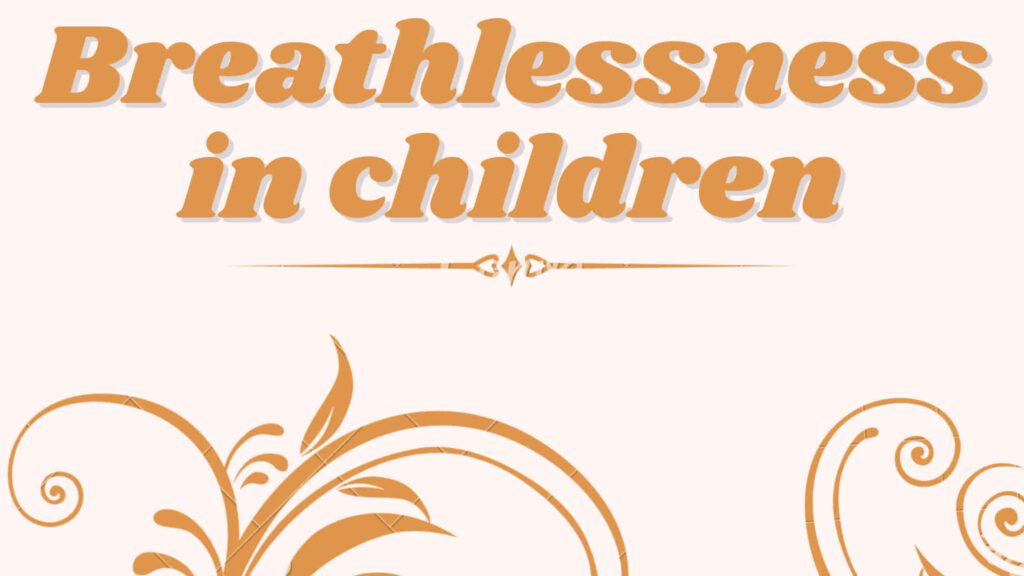Liver Hurts when You bend over? We got you. We will delineate all the causes that will explain the query why does your liver hurt when you bend over.
First of all we need to distinguish this pain. The vague abdominal pain can come from any organ in the stomach. and its particular pain on bending over does mean something also. So, We need to distinguish the various causes of pain. Lets dive deep in

Table of Contents
Gall bladder or liver
I’m sure you’ve experienced this type of pain before, especially in the morning if you have gall bladder issues, but what exactly is going on? Pain in the right upper abdomen that occurs when you bend over could be caused by several different things, including your liver or even your gallbladder. Read on to find out which one it is and what to do about it!
So how to diagnose it? If you have Fever, Jaundice or Vomiting associated with Pain while bending over, Then the possible cause would be a liver disease.
if you are Chronic alcoholic, took megadose of pills eg: Paracetamol, had Hepatitis, Malaria or any liver disease in the past, Chances that the pain is due to liver are there .
Other than that, Please keep in mind the more common causes of Pain while bending over.
Causes of Pain on Bending
Causes of Pain in the Right Upper Quadrant
In many cases, pain in the right upper quadrant is caused by an issue with the liver. It is a common misconception that this pain is always due to gallbladder problems. If you are experiencing this type of pain, you should contact your doctor immediately to get checked out.
There are some other causes of liver pain which include: inflammation, infection, and clogging of bile ducts. The good news is that there are treatments for these ailments! However, in order to be properly diagnosed, you will need to consult your physician.
They will run tests on you and determine what’s causing the discomfort. The most accurate way to know what’s causing the problem is through imaging studies such as MRI or Ultrasounds.
Your doctor may also want to take a biopsy of your liver. This process involves removing some of your liver tissue and analyzing it for any abnormalities. After completing these tests, you should have a better idea of what’s causing your pain and how to treat it.

Upper right quadrant
If you’re experiencing pain in the upper right quadrant of your abdomen, it can be caused by either liver or gall bladder pain. The most common causes of liver pain are bile duct obstruction, hepatitis, and cirrhosis.
The most common causes of gallbladder pain are cholecystitis, a blockage in the bile ducts, and pancreatitis. If you’re experiencing any other symptoms that accompany this condition such as fever and chills, please contact your doctor immediately.
It is possible to have both causes at the same time if one causes inflammation of the other. For example, if you have inflammation around your liver from Hepatitis then your Gall Bladder could become inflamed too (causing some discomfort) which could also cause Liver Pain in that area too.
The only way to know for sure is to consult with a doctor to diagnose this condition!
Lets dive deep into this universe to look at the causes of pain while bending over.
1. Muscle Strain:
Overexertion or sudden movements can lead to muscle strain in the abdominal region.
Bending over may exacerbate this strain, causing localized pain. Activities such as heavy lifting or sudden twisting motions can contribute to muscle strain.
2. Gastrointestinal Issues:
Various gastrointestinal conditions can cause abdominal pain. Examples include gastroenteritis, inflammatory bowel disease (IBD), irritable bowel syndrome (IBS), or constipation. Bending over may increase intra-abdominal pressure, triggering or worsening the pain associated with these conditions.
3. Hernia:
A hernia occurs when an organ or tissue protrudes through a weak spot in the abdominal wall.
Bending over can increase pressure on the weakened area, leading to pain. In hernia, there is pain while coughing, doing Valsalva Manoeuver and while lifting heavy objects.
4. Gallbladder Issues:
Gallstones or inflammation of the gallbladder (cholecystitis) can cause pain in the upper right or middle abdomen. Bending over may affect the position of the gallbladder and trigger pain. Pain from gallbladder issues is often associated with fatty meals.
You can test whether it is inflammed gall bladder or not by doing Murphy’s Test
Steps for Murphy’s Test:
- Prepare for the self-conducted Murphy’s test by finding a quiet and comfortable space where you can lie down or sit.
- Identify the right upper quadrant of your abdomen, just below the lower edge of your right ribcage.
- Gently place your fingers, typically from your right hand, in this area.
- Take a deep breath in to assess any discomfort or pain associated with movement.
- While inhaling deeply, observe your facial expression and pay attention to sensations or discomfort below your right ribcage.
- Check for tenderness or pain beneath your fingers, and note any experienced discomfort.
- If uncertain, repeat the test for accuracy. Keep in mind that self-testing has limitations, and findings should be discussed with a healthcare professional for a comprehensive evaluation.
- Positive Murphy’s Sign: Pain or abrupt cessation of deep inhalation suggests possible gallbladder inflammation (cholecystitis).
- Negative Murphy’s Sign: Absence of pain or tenderness indicates a lower likelihood of gallbladder inflammation
5. Kidney Stones:
If there are kidney stones present, movement or changes in position, such as bending over, can cause the stones to shift within the urinary tract, leading to pain. The pain may be felt in the lower abdomen or flank.
6. Appendicitis:
Inflammation of the appendix, known as appendicitis, can cause pain in the lower right abdomen. Bending over might increase pressure and aggravate the pain. Appendicitis is a medical emergency requiring prompt attention.
Though cause pain in center of abdomen, but sometimes it can migrate to right upper quadrant.
7. Musculoskeletal Issues:
Conditions like vertebral disc issues, spinal misalignment, or other musculoskeletal problems can cause referred pain to the abdomen. Bending over may exacerbate this pain by putting stress on the affected area.
It’s essential to emphasize that self-diagnosis is not recommended, and a healthcare professional should evaluate persistent or severe abdominal pain. They may conduct a physical examination, order imaging or lab tests, and take your medical history to determine the underlying cause and recommend appropriate treatment.
Treatment Options
1. Muscle Strain:
- Rest and avoiding activities that exacerbate the strain.
- Applying ice or heat to the affected area.
- Over-the-counter pain relievers, if recommended by a healthcare professional.
- Physical therapy for rehabilitation and prevention of future strains.
2. Gastrointestinal Issues:
- Dietary changes, including a high-fiber diet for constipation.
- Medications for specific conditions (e.g., antispasmodics for IBS).
- Lifestyle modifications, such as stress reduction for IBS.
- Prescription medications for inflammatory bowel diseases.
- Hydration and electrolyte replacement for gastroenteritis.
3. Hernia:
- Lifestyle modifications to reduce pressure on the abdomen.
- Monitoring the hernia under medical supervision.
- Surgical repair for larger or symptomatic hernias.
4. Gallbladder Issues:
- Dietary modifications, including a low-fat diet.
- Medications to dissolve gallstones or relieve symptoms.
- Surgical removal of the gallbladder (cholecystectomy) in some cases.
You may have gallstones, which are small stones that form in your gallbladder and cause inflammation and discomfort. It’s important to find out what type of stone is causing the problem because some types are more serious than others. For instance, if there’s blood in your stool, it may mean you have a bleeding peptic ulcer or hemorrhoids. Depending on what type of stone you have, your treatment options will vary.
5. Kidney Stones:
- Increased fluid intake to help pass the stones.
- Pain management with medications.
- Medical expulsive therapy.
- In some cases, surgical intervention or shock wave lithotripsy.
6. Appendicitis:
- Emergency surgical removal of the inflamed appendix (appendectomy).
- Antibiotics may be administered before surgery.
7. Musculoskeletal Issues:
- Physical therapy for rehabilitation and pain management.
- Medications for pain relief and inflammation.
- Lifestyle modifications to prevent further stress on the spine or muscles.
It’s essential to note that self-treatment may not be suitable for all conditions, and seeking prompt medical attention is crucial for a proper diagnosis and appropriate management




Pingback: Liver Failure: Hidden Signs and Treatment - MedicoGenius